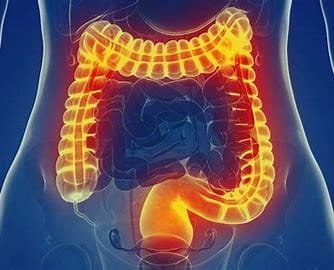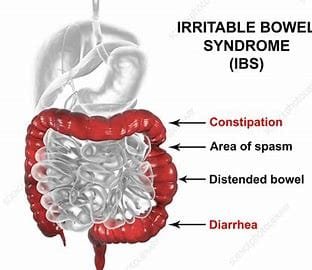Irritable Bowel Syndrome is one of the most common gastrointestinal disorders, characterized by a combination of symptoms including abdominal pain, bloating, and altered bowel habits that may include constipation, diarrhea, or both. Though IBS is a chronic condition, it is not life-threatening in itself. Indeed, most people who have this syndrome live relatively normal lives. However, this condition can substantially affect the quality of life and may lead to several health complications if left unmanaged.

Understanding IBS
IBS is more often observed in women than in men and typically onsets at an early age in adulthood. The true cause of IBS is not known, but a few contributing factors include abnormalities in gastrointestinal motility and pain sensitivity and increased reactions to infections and stress. A core issue underlying IBS is the gut-brain axis because the setting of increased stress, anxiety, and depression is frequently linked with the exacerbation of symptoms.
There are three main types of IBS:
IBS with constipation (IBS-C): presents with hard, infrequent stools. IBS with diarrhea (IBS-D): presents with loose, frequent stools. IBS with mixed bowel habits (IBS-M): varies between diarrhea and constipation. IBS can be of varying severity; some people may experience mild symptoms, whereas others have severely debilitating symptoms. There is no cure for IBS, but lifestyle modifications, dietary changes, and medications can relieve symptoms. What are the main symptoms of IBS? The main symptoms of IBS include:
Abdominal pain and cramping: ordinarily relieved by defecation or the passage of gas.
Bloating and gas: Feeling of fullness or swelling in the abdomen.
Diarrhea or constipation: Some patients can experience sudden, urgent bowel movements, whereas other patients have infrequent, difficult defecation.
Mucus in stools: There can be a clear or white mucus present in the stool.
These symptoms can be unpredictable and sometimes may occur at regular intervals, which creates a situation of anxiety and even emotional distress.
Complications Associated With IBS
Although IBS is non-life-threatening, its effect on health and well-being is pretty remarkable. Here are the major complications that come under the ambit of IBS:
1. Effect on Mental Health
IBS can seriously affect a person’s mental health. There are also a few studies that suggest individuals suffering from IBS have a greater tendency to experience anxiety and depression than the normal population. Their state is pretty unpredictable and stressful, which results in a vicious cycle of growing symptoms due to stress and growing tension because of more unpleasant symptoms. In this respect, it can be difficult to break through such a cycle and stabilize one’s life. CBT and other psychologic support may help to ease all these challenges.
Nutritional Deficiencies
Most patients with IBS find themselves avoiding certain foods that act as triggers. This usually results in nutritional deficiencies because most people go for restrictive diets. For instance, high fiber intake can make diarrhea worse, whereas some patients will abhor certain complex carbohydrates that cause bloating. IBS-D individuals may avoid a high-fiber diet intake because of worsening diarrhea, while IBS-C may tend to curtail certain complex carbohydrates that trigger bloating. With time, it can lead to deficiencies in basic vitamins and minerals like iron, calcium, and vitamin D, which everyone needs for a healthy body. Hence, appropriate dietary counseling by healthcare professionals to an IBS patient should be done properly.
3. Dehydration

Diarrhea, especially chronic, can lead to severe dehydration in individuals who have IBS-D. The second, third, and fourth complications will be electrolyte imbalances and a decline in cognitive performance and physical performance, besides the importance of hydration and replenishment of lost fluids and electrolytes that can prevent the second complication.
4. Chronic Fatigue
Most of the patients suffering from IBS have complained of persistent fatigue, which may become incapacitating at times and can impede their daily activities. The cause of this fatigue may be attributed to the ongoing discomfort and sleep disturbances due to the condition. Chronic fatigue limits the performance of physical activities, and the person suffering from it might result in adopting a sedentary lifestyle that exacerbates the symptoms of IBS.
5. Hemorrhoids
HEMORRHOIDS Probably the most common complication a person develops in his/her lifetime, hemorrhoids are often associated with IBS, particularly the constipation-predominant type of IBS. Straining to pass hard stools can lead to swollen veins that cause discomfort, itching, and even bleeding. Hemorrhoids can be so severe that they call for a surgical intervention if left untreated.
6. Lower Quality of Life
The unpredictability of the condition probably adds another level of complexity to the quality of life of the patient with IBS. Routine is severely affected, and it becomes impossible to participate in social events or even to accomplish daily routines. Most patients with IBS develop feelings of embarrassment, social isolation, and frustration over their symptoms that lead to a deterioration in emotional and social well-being.
Management of IBS and prevention of complications
There is no medical treatment for IBS, but a multi-dimensional approach can help to ease the symptoms of the disease and prevent complications. The following are some of the strategies commonly recommended:
Dietary Modification: A low-FODMAP diet comprised of fermentable oligosaccharides, disaccharides, monosaccharides, and polyols can significantly improve the symptoms of IBS in many patients. Other dietary adjustments include the exclusion of foods that can trigger symptoms, such as caffeine, alcohol, or spicy foods.
Drugs:
The medication management is different according to the type of IBS. Laxatives are used in cases of constipation and antidiarrheal medication in cases of diarrhea. Antispasmodic drugs are used to reduce spasms that occur in the abdomen.
Stress Management:
There is a great gut-brain connection that makes stress-reducing techniques the main cause. Meditation, yoga, and mindfulness may actually decrease the severity of disease symptoms.
Regular Exercise: Regular exercise helps people maintain their bowel movements on regular time and reduces stress levels to a great extent, thus helping to alleviate IBS symptoms.
Psychological Support:
In addition, therapy—which can range from CBT to counseling—should be given to patients suffering from the psychological stress of IBS.
Conclusion
IBS can be a chronic but controllable condition affecting millions worldwide. Though it is not life-threatening nor causing significant serious complications, it could impact the quality of life drastically on the side of the patient. The complications of IBS include psychological impairment, nutritional deficiency, and chronic fatigue. Understanding all of these could help individuals with IBS prevent such complications and take proactive measures for the management of their symptoms. In most cases, the management of IBS can be achieved by appropriate lifestyle modification in combination with medical treatment and adequate psychological support.




